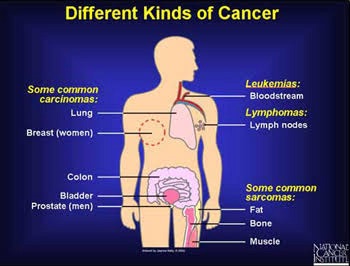Uncategorized
Navigating the Landscape of Cancer in the United Kingdom: Insights, Challenges, and Progress

Introduction:
Cancer is a significant public health concern in the United Kingdom, impacting millions of lives each year. Despite advancements in research and healthcare, cancer remains a leading cause of morbidity and mortality nationwide. This article aims to provide an overview of the current state of cancer in the United Kingdom, including key statistics, common types of cancer, prevention efforts, advancements in treatment, and challenges facing cancer care.
Overview of Cancer Incidence and Mortality:
Cancer incidence and mortality rates in the United Kingdom reflect global trends, with a substantial burden of disease on individuals, families, and the healthcare system. According to Cancer Research UK, around 390,000 new cancer cases are diagnosed each year in the UK, with over 160,000 cancer-related deaths annually. These statistics underscore the urgency of addressing cancer as a public health priority.
Common Types of Cancer:
Similar to other developed countries, the United Kingdom experiences a high prevalence of various cancer types. Among the most commonly diagnosed cancers in the UK are breast cancer, lung cancer, prostate cancer, colorectal cancer, and skin cancer. Each type presents unique challenges in terms of prevention, early detection, and treatment.
Risk Factors and Prevention:
Many risk factors for cancer are modifiable, highlighting the importance of preventive measures and lifestyle interventions. Tobacco use, unhealthy diet, physical inactivity, excessive alcohol consumption, and exposure to environmental pollutants are among the primary risk factors for cancer in the UK. Public health campaigns and policies aimed at promoting healthy behaviors and reducing exposure to carcinogens are crucial
Of course! Let’s continue from where we left off:
Community Engagement and Advocacy:
Community engagement and advocacy play a vital role in raising awareness, reducing stigma, and mobilizing resources to address cancer in the UK. Cancer survivors, caregivers, healthcare professionals, researchers, and advocacy organizations collaborate to advocate for policy changes, promote early detection initiatives, and support individuals affected by cancer. Grassroots initiatives, fundraising events, and support groups provide avenues for individuals to connect, share experiences, and access information and resources to navigate their cancer journey.
The Impact of COVID-19:
The COVID-19 pandemic has posed unprecedented challenges to cancer care and management in the UK. Disruptions to healthcare services, delays in cancer screening and diagnosis, and changes in treatment protocols have affected cancer patients and healthcare systems nationwide. The need to balance the risks of COVID-19 transmission with the imperative to provide timely and appropriate cancer care underscores the importance of adaptive and resilient healthcare systems.
Innovation and Technology:
Advancements in technology and digital health have the potential to transform cancer care delivery and patient outcomes in the UK. Telemedicine, remote monitoring, and digital platforms enable virtual consultations, remote symptom management, and access to supportive care services, enhancing convenience and accessibility for cancer patients. Additionally, artificial intelligence and machine learning algorithms hold promise for improving cancer detection, diagnosis, and treatment planning through data-driven insights and precision medicine approaches.
Equity and Access:
Addressing disparities in cancer outcomes and access to care is a critical priority for healthcare policymakers and stakeholders in the UK. Socioeconomic factors, geographical location, ethnicity, and other determinants of health contribute to inequities in cancer incidence, mortality, and survival rates. Efforts to improve access to cancer screening, diagnostic services, treatment modalities, and supportive care must be guided by principles of equity, inclusivity, and cultural sensitivity to ensure that all individuals receive timely and equitable care, regardless of their background or circumstances.
International Collaboration:
Collaboration across borders is essential for advancing cancer research, sharing best practices, and addressing global health challenges. The UK collaborates with international partners, research consortia, and global health organizations to leverage expertise, resources, and data to accelerate progress against cancer. Initiatives such as the International Cancer Genome Consortium (ICGC), the World Health Organization’s (WHO) Cancer Control Program, and collaborative research networks facilitate knowledge exchange and capacity-building efforts to improve cancer prevention, diagnosis, and treatment worldwide.
Looking Ahead:
As the UK continues to navigate the complex landscape of cancer care, collaboration, innovation, and a commitment to equity will be essential for driving progress and improving outcomes for individuals affected by cancer. By investing in research, strengthening healthcare systems, promoting preventive measures, and supporting community engagement and advocacy efforts, we can work towards a future where cancer is no longer a leading cause of morbidity and mortality in the UK. Together, we can build a more resilient, equitable, and compassionate healthcare system that meets the needs of all those affected by cancer and promotes health and well-being for generations to come.
Conclusion:
Cancer remains a significant health challenge in the United Kingdom, but concerted efforts across multiple fronts are driving progress in prevention, diagnosis, treatment, and survivorship. By addressing key priorities such as prevention, early detection, access to care, innovation, equity, and international collaboration, we can continue to make strides towards reducing the burden of cancer and improving outcomes for individuals and communities across the UK. With a shared commitment to research, advocacy, and compassionate care, we can create a future where cancer is not only treatable but preventable, and where every person affected by cancer receives the support and care they need to live their fullest lives.











